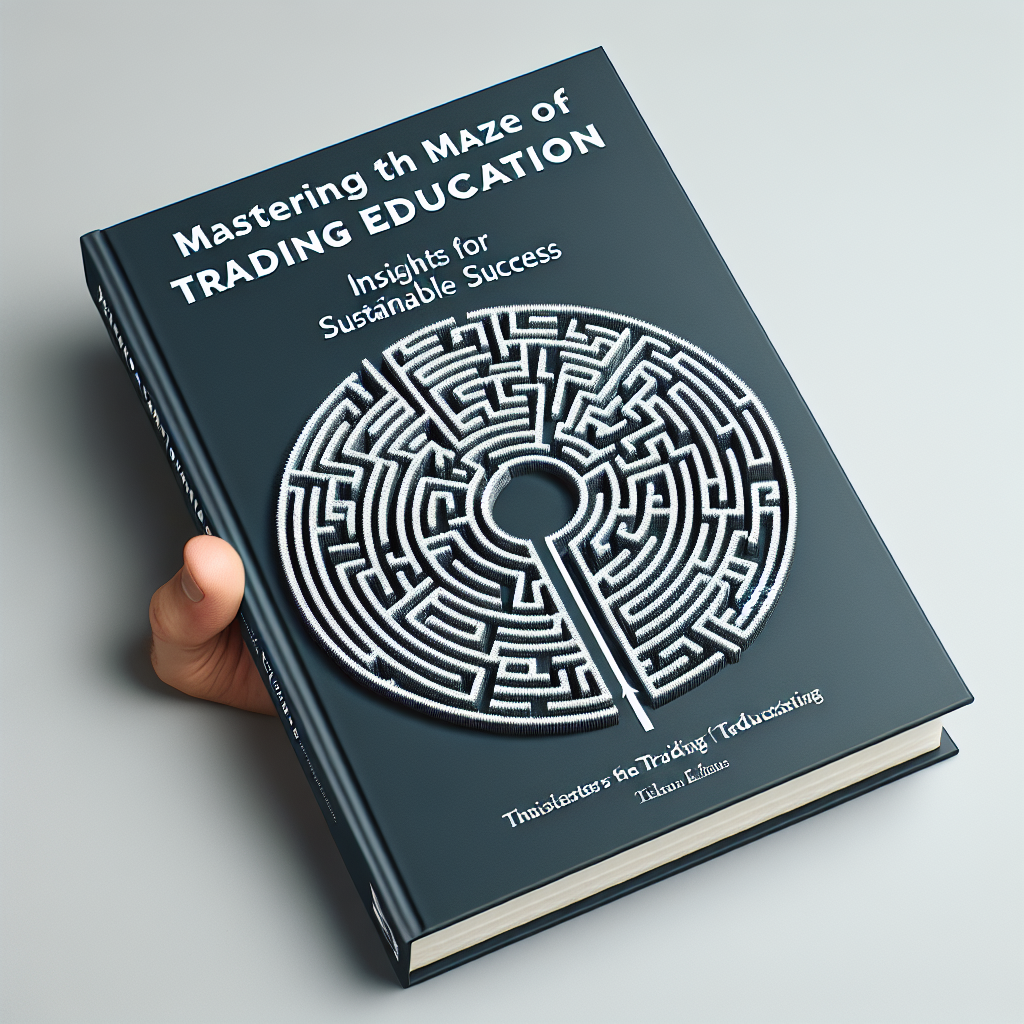The Wealth of Trading Education: Navigating the Riches of Knowledge
In today’s digitized world, trading knowledge is no longer held captive by exclusive financial institutions or seasoned traders. With the booming proliferation of online resources, YouTube tutorials, blogs, podcasts, and trading academies, anyone with an internet connection can access a deep well of trading education. While this democratization of information is a gift, it can also become a labyrinth, especially for newcomers. So, how do we navigate this treasure trove effectively, and what should we watch out for?
### The Flood of Information: An Opportunity or Overload?
There’s an undeniable benefit to the availability of trading knowledge. Platforms like Skypex Trading Academy, which offer structured educational programs, empower individuals to acquire insights into forex, stocks, cryptocurrencies, and different trading instruments without needing a university degree or a hefty bank account. For many people in emerging markets who are hungry for financial independence, this knowledge represents an unprecedented opportunity.
But with access also comes the challenge of discernment. The internet is rife with opinions—some helpful, but many misleading. As Udo Depic, a veteran trader and educator at Skypex, aptly pointed out, “Most people giving advice out there have never actually succeeded in trading themselves.” He highlights a critical issue of the financial education ecosystem today: anyone can claim expertise.
Unfortunately, this has led to an overabundance of flashy promises—young influencers flaunting rented sports cars, touting 20-30% returns monthly, and selling overpriced “masterclasses” or subscription packages. For the untrained eye, these spectacles can create false expectations and skew the understanding of realistic trading success.
### Critical Thinking and Long-Term Vision in Trading
The antidote to the chaos of misinformation is critical thinking. Aspiring traders must approach their education with a healthy dose of skepticism and focus on learning from trustworthy sources. Udo offers a golden nugget of wisdom: “Only trust people who have real-world success and don’t rely on wealth as a showpiece.” The markers of true expertise are consistency, longevity, and a methodical approach to wealth-building—not overnight success stories.
Here’s the truth about trading: it’s not a get-rich-quick scheme. As discussed in Skypex’s podcast, creating wealth through trading requires discipline, education, and a long-term vision. The mantra shared in the podcast is, “Aim for 10-15% returns annually.” While modest in comparison to the extravagant claims of some so-called experts, these percentages represent sustainable and secure growth—especially when compounded over years.
Udo highlights another critical rule: never trade with money you can’t afford to lose. Many beginner traders fall into the trap of risking their savings or tying their trading outcomes directly to their bills or mortgage payments. Instead, successful trading should come from a place of financial stability. As Udo wisely puts it, “Your daily life should be covered by your job; trading is for your extra, for your long-term goals.”
### Emerging Markets and Personal Connections in Trading
A fascinating insight from the podcast was the untapped opportunities in emerging markets. Udo advises traders to invest in what they know and understand. If you reside in or have a deep personal connection to a particular market—whether it’s in Africa, Asia, or South America—you already have an edge. For example, living in Dubai and feeling the pulse of its booming economy could guide investment decisions into local opportunities, from IPOs to thriving sectors like infrastructure.
There’s a human-centric benefit to trading as well. Community plays a vital role not only for accountability but also for learning. As discussed in the Skypex podcast, traders who engage in group education often gain new perspectives by contrasting their insights with those of their peers. “Learning in a group amplifies the benefits,” Udo says, emphasizing the combination of independent strategy with shared wisdom.
### The Pitfall of Chasing Short-Term Gains
Another major hurdle for aspiring traders is resisting the temptation to chase short-term gains. Markets like cryptocurrency are particularly high-stress due to their volatility. Without solid time management or a well-developed strategy, traders often find themselves glued to their computer screens, paralyzed by fear, or pulling out of trades too early based on short-term fluctuations.
The key? Keep emotions in check and focus on a systematic approach. Udo’s advice to new traders is to start small—risk no more than 5-10% of your account in early trades. Losses, though inevitable, become teachable moments when the stakes are manageable. With measured risk and patience, traders can grow both their portfolios and confidence over time.
### Never Stop Learning
Ultimately, the journey of trading is lifelong. As Udo reflected in the podcast, “If you stop learning, you stop growing.” This philosophy applies not just to trading but to life in general. While trading education requires technical analysis, fundamental knowledge, and market insights, it’s also deeply influenced by mindset. A growth-driven mentality, combined with personal discipline and honest reflection, forms the foundation for lasting success.
For those entering the complex world of trading, platforms like Skypex Trading Academy provide an invaluable balance of structure and community. Their 52-week program—covering fundamentals to advanced strategies—allows traders to methodically build their knowledge without falling prey to misinformation or unrealistic expectations.
In a world rich with sources of trading education, the real treasure lies in discernment, discipline, and a steady-hand approach. For those willing to put in the time and effort, trading can be not just a financial opportunity but also a pathway toward personal growth and empowerment.

